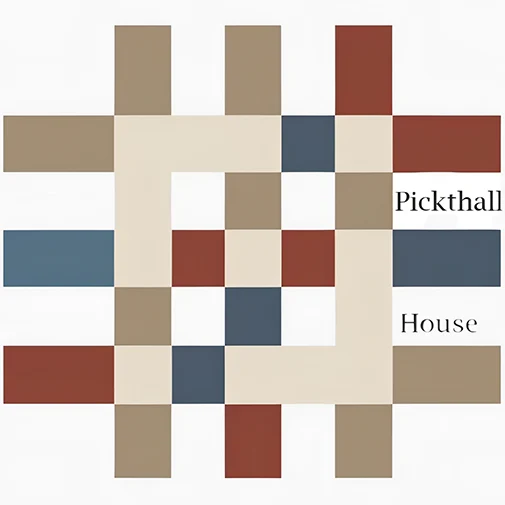Pickthall House is optimistic given the success of political representatives beyond the two incumbent parties, but remains cautious that it shouldn’t come at the cost of further identitarianism.
Premise
The 2024 General Election in the UK saw the election of 5 independent MPs to Parliament. These are:
- Jeremy Corbyn
- Shockat Adam
- Adnan Hussain
- Ayoub Khan
- Iqbal Mohamed
Monoliths and their upshots
First, we ask ourselves: is it the case that these MPs were elected as a result of single-issue voting bloc activity?
We define sectarian voting bloc activity as the phenomenon where a group of voters, often organised or aligned based on a specific interest or concern, cast their votes primarily based on a single issue, rather than a broader range of policies or candidate qualities.
There’s some evidence to suggest this. To begin with, all the elected independents have clear stances on Gaza. Shockat Adam, an optician from Leicester, unseated shadow Cabinet minister Jonathan Ashworth, and notably held up a keffiyeh upon victory and announced, “this is for the people of Gaza.” Adnan Hussain is also quoted as saying “This is for Gaza. I cannot deny that I stand here as a result of a protest vote on the back of a genocide.” Iqbal Mohamed stated clearly that “[his] initial focus will include fighting for a ceasefire and two-state peace agreement in Gaza, tackling the cost-of-living crisis, fighting to save the NHS and Dewsbury Hospital, funding for all essential services…” Ayoub Khan notably went independent in the first place, quitting the LibDems publicly, after claiming he was told to ‘hush up’ about Gaza. Corbyn also asserted the “end of the genocide” as a reason to vote independent.
Add to this the efforts of the grassroots The Muslim Vote movement, which explicitly solicited votes for these candidates predicated on their stances on Gaza.
There remains a bit of counter-evidence as well, including George Galloway’s [a vocal opponent of Israel’s response] loss in Rochdale.
In general, however, it does appear to be the case that voter turnout dropped significantly across the board, while Muslims [and many other dissatisfied members of the population] did in fact express their political views where possible by bloc-voting Independent or abstaining entirely.
All in all, Pickthall House sees this as a minor success for the ability of populations to organise themselves and shape the political landscape at the ballot box, even if it only resulted in 4 or 5 seats. Arguably, the success of candidates campaigning against war crimes that have been glossed over by the major parties indicates the vitality of British democracy.
Nevertheless, Pickthall House remains cautious. There are caveats.
On the dangers of identitarianism
Entertaining the idea that we might have some single-issue voting bloc activity here in the UK, let’s now consider some possible long-term effects.
Potential dangers include:
- Identitarian Polarisation: Pickthall House remains wary of exacerbating divisions within broader British society, the inculcation of an “us vs. them” mentality, one that will only heighten competitive tensions between subgroups in the UK. Indeed, overemphasis on identitarian concerns can overshadow broader, more inclusive policy discussions, fragmenting the political landscape and undermining collective decision-making.
- Reduction of Political Scope and Compromise: Given single-issue voting blocs, politicians are incentivised to cater exclusively to the interests of their specific voting blocs rather than seek common ground, reducing opportunities for collaborative policymaking. Of course, this also risks a collapse of political priorities. i.e. policymakers can be given carte blanche in exchange for catering [often in an impractical, pointless way] to their subgroups’ issue of choice. Pickthall House believes that good politics is often predicated on broad, uncomfortable compromises.
- Undermining Meritocracy: As is often the case with strong ingroup-outgroup dynamics, policies resulting from block voting may prioritise group identity over merit and competence, leading to ineffective governance and erosion of trust in public institutions. This is easily seen in the election, fraud and subsequent resignation of Lutfur Rahman in Tower Hamlets.
An example from across the pond include Democrat voters often willing to overlook major public concerns over Biden’s mental fitness in order to protect tribal interests. The point here is not Biden’s mental acuity of course, but that if there are concerns about it, it’s more concerning that Democrat voters are willing to overlook them out of in-group favouritism.
Searching for balance
While it is undeniably positive that some constituencies have sought beyond the confines of the two-party system in order to express their political preferences, thereby broadening the scope of both political debate and local representation in Westminster, Pickthall House remains cautious that this ought not to foment further fracturation of political power along sectarian, religious or demographic grounds.
It remains critical that each of the candidates, the incumbent political parties, and even the Muslim subpopulation themselves do not treat the Muslim subpopulation as a monolithic block voting group whose support is best captured by unworkable, if impassioned, soundbites on possible British responses to crises in the Middle East, but that they sincerely represent their political concerns here and now in Britain itself.
It remains a core goal of Pickthall House that Muslims and the rest of Britain do not see themselves as distinct subpopulations with interests contra those of the others.
Instead, it is important to reframe and re-iterate the idea that in a complex, multicultural society it is inevitable that we will incur a variety of political views and interests even if they are mutually exclusive, that it is good for them to be expressed in the marketplace of ideas and at the ballot box and that ultimately, by trusting ourselves and each other to remain committed to the notion of the common good in Britain that we can find the requisite golden path that takes us forward as a nation.
References:
Pro-Palestine votes aren’t ‘sectarian’ by the Guardian
Who are the pro-Gaza independents who unseated Labour MPs? by the Guardian Jeremy Corbyn and other independent MPs form loose coalition to pressure Labour by the FT
Iqbal Mohamed’s election statement on Who can I vote for?
Ayoub Khan quits LibDems after being told to ‘hush up’ on Gaza by Birmingham Live
Birmingham Perry Barr Results by the BBC


